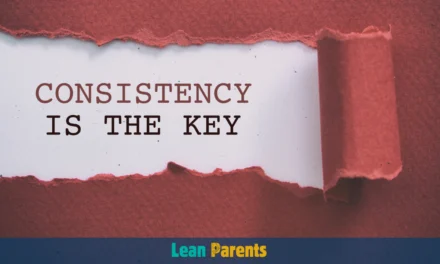Parenting often feels like a juggling act, where balancing work, family, and personal well-being becomes an uphill struggle. In the midst of daily challenges like tantrums, backtalk, or exhaustion, maintaining patience and understanding can seem impossible. Enter radical empathy—a powerful tool that not only eases the day-to-day frustrations but also transforms the relationship you have with your child. Embracing this deep form of empathy can provide profound shifts in your home, helping you navigate the emotional storms of parenting with more grace, compassion, and success.

What is Radical Empathy?
Radical empathy is more than just putting yourself in someone else’s shoes—it’s about fully immersing yourself in their emotional experience, recognizing their feelings without judgment, and responding with genuine compassion. In parenting, radical empathy invites you to connect with your child’s emotions on a deeper level. It means understanding their struggles, frustrations, and needs in ways that go beyond the surface. This approach builds a foundation of trust and mutual respect that is transformative for both the parent and the child.
The Need for Radical Empathy in Parenting
Today’s fast-paced world often leaves little room for genuine emotional connection. Technology, work commitments, and societal expectations can detract from the time and energy parents can invest in building emotional understanding with their children. Yet, radical empathy offers an antidote to the growing disconnect between parents and kids. By prioritizing empathy, parents can create safe spaces for children to express themselves, ensuring they feel heard, understood, and valued. This approach not only addresses the child’s immediate emotional needs but also fosters long-term emotional security.
Empathy vs. Sympathy: Key Differences in Parenting
Many parents confuse empathy with sympathy, but they are not the same. Sympathy often implies pity or feeling sorry for someone, which can unintentionally create a power imbalance. In contrast, empathy—especially radical empathy—focuses on a shared emotional experience. Instead of feeling bad for your child during a meltdown, empathy asks you to feel with them, understanding their world from their perspective. This distinction is crucial because empathetic parenting is about partnering with your child emotionally rather than seeing their struggles from a distance.
Why Radical Empathy is Crucial for Parent-Child Relationships
The importance of radical empathy in parenting cannot be overstated. Children, especially younger ones, rely heavily on their parents for emotional regulation. When parents respond empathetically to outbursts or emotional distress, they teach their children how to navigate complex feelings. Moreover, it deepens the parent-child bond. Children feel seen and valued when their emotions are met with understanding, creating a sense of security that lasts a lifetime.
How It Impacts Children’s Emotional Intelligence

One of the most significant benefits of practicing radical empathy is its positive impact on a child’s emotional intelligence (EQ). Children who experience empathy from their parents are more likely to develop strong emotional awareness, self-regulation, and empathy for others. They learn that emotions are valid and manageable, which is essential for navigating social situations and relationships as they grow. Radical empathy empowers children to express themselves openly without fear of judgment, fostering confidence and resilience.
Breaking Negative Parenting Cycles with Radical Empathy
Parenting, often unconsciously, repeats the patterns we experienced as children. If we were raised with authoritarian or emotionally distant parenting styles, we might struggle to break these cycles. Radical empathy disrupts this loop by encouraging a shift in perspective. Rather than reacting out of frustration or replicating punitive approaches, empathetic parenting helps you pause, reflect, and respond with understanding. This emotional attunement is key to creating healthier, more supportive environments for both you and your children.
Stepping into Your Child’s Shoes: A New Perspective
The most fundamental aspect of radical empathy is the ability to see the world from your child’s point of view. Children experience the world very differently from adults; their brains are still developing, and their understanding of emotions is limited. When your child throws a tantrum over what seems like a trivial issue, try to see the situation through their eyes. To them, a broken toy or a skipped dessert might feel like the end of the world. By recognizing this, you can respond with empathy rather than frustration, helping them navigate these intense feelings with support.
Active Listening: The Foundation of Radical Empathy

A cornerstone of radical empathy is active listening. This goes beyond hearing your child’s words; it’s about truly engaging with their emotions and body language. When your child talks to you—whether they’re expressing anger, sadness, or excitement—give them your full attention. Maintain eye contact, ask clarifying questions, and validate their feelings. This practice not only makes your child feel valued, but it also models for them the importance of listening and understanding in relationships.
Recognizing and Validating Emotions
Children often struggle to understand their emotions, let alone articulate them. As a parent practicing radical empathy, your role is to help them recognize and validate these feelings. Instead of dismissing their sadness or frustration with phrases like “It’s not a big deal” or “Stop crying,” acknowledge their emotions by saying things like, “I see that you’re really upset right now.” This simple shift in language affirms that their feelings are valid, helping them feel supported as they work through their emotions.
How to Respond to Daily Tantrums with Radical Empathy
One of the greatest challenges in parenting is handling tantrums. These emotional outbursts can be exhausting and overwhelming, especially when they occur in public or at inconvenient times. Radical empathy, however, turns these moments into opportunities for connection. Instead of reacting with anger or impatience, take a deep breath and try to understand the underlying cause of your child’s distress. Is it frustration, tiredness, hunger? Once you identify the root cause, you can approach the situation with compassion, offering comfort rather than punishment.
In the next section, we will explore practical techniques for applying radical empathy during difficult conversations with teenagers, transforming power struggles into bonding opportunities, and reducing daily parenting stress. By the end of this article, you will have actionable insights on how radical empathy can not only alleviate daily struggles but also create a deeply fulfilling parent-child relationship.
Empathy During Difficult Conversations with Teenagers
As children grow into teenagers, the emotional dynamics between parent and child often become more complex. Adolescence is a period filled with intense emotions, identity exploration, and a strong desire for independence, which can result in frequent conflicts or misunderstandings. For many parents, navigating difficult conversations with teenagers can feel like walking a tightrope—balancing between maintaining authority and allowing room for self-expression.
This is where radical empathy can transform your approach. Rather than entering these conversations with a defensive or authoritarian mindset, it helps to approach them from a place of curiosity and understanding. Teenagers are often grappling with emotions they can’t fully articulate, making it essential for you to actively listen without interrupting or invalidating their feelings. Ask open-ended questions like, “Can you tell me more about how you’re feeling?” or “What can I do to help?” This not only gives them the space to express themselves but also shows that you value their opinions and emotions.
Empathy doesn’t mean agreeing with every decision or behavior but acknowledging the struggle behind their actions. When a teenager feels understood, they are more likely to open up, allowing you to guide them through difficult decisions with mutual respect.
Turning Power Struggles into Bonding Opportunities
Power struggles are an inevitable part of parenting. Whether it’s about bedtime, chores, or screen time, these conflicts can quickly escalate, leaving both parties feeling frustrated and defeated. However, radical empathy can transform power struggles into bonding opportunities by shifting the focus from control to connection.
Instead of viewing the situation as a battle to be won, try to understand the underlying emotions driving your child’s behavior. Are they feeling unheard, overwhelmed, or seeking autonomy? Once you identify these feelings, you can address the root cause instead of the surface-level issue. For instance, if your child refuses to do their homework, instead of enforcing a punishment, ask them how they’re feeling about their workload. This empathetic approach not only resolves the immediate conflict but also fosters trust and strengthens your relationship.
Incorporating radical empathy into these moments teaches your child that their emotions matter, even during disagreements. Over time, this practice helps reduce the frequency of power struggles as children learn that their feelings will be met with respect, not resistance.
How Radical Empathy Eases Your Daily Parenting Stress
Parenting stress is a common experience, whether you’re dealing with a toddler’s tantrums or a teenager’s attitude. The demands of raising children can sometimes feel overwhelming, leading to feelings of frustration, guilt, or even burnout. One of the hidden benefits of radical empathy is its ability to alleviate this stress by fostering a more peaceful and cooperative family environment.
When you respond to your child’s emotional needs with empathy, you reduce the likelihood of escalating conflicts. This means fewer shouting matches, less tension, and a calmer atmosphere at home. By focusing on understanding rather than controlling, you shift the energy in your household from conflict to connection.
Moreover, radical empathy isn’t just about showing compassion for your child—it’s also about showing empathy for yourself. Parenting is hard, and it’s okay to acknowledge your own emotional struggles. Practicing self-empathy means recognizing that you are doing your best, even when things don’t go perfectly. It involves setting realistic expectations for yourself and taking time for self-care, which in turn helps you be more present and patient with your child.
Cultivating Patience and Compassion for Yourself
Self-compassion is a crucial component of radical empathy that often gets overlooked. As parents, we can be our own harshest critics, feeling guilt or shame when we lose our temper or struggle to meet the endless demands of family life. However, just as your child needs understanding and validation, so do you.
Cultivating patience for yourself means accepting that parenting is a journey filled with ups and downs. Instead of beating yourself up over mistakes, use radical empathy to reflect on why you reacted a certain way and what you can learn from it. Did you yell because you were exhausted? Were you short with your child because of external stress? Recognizing these triggers allows you to approach future situations with more mindfulness and emotional resilience.
Radical empathy encourages parents to extend the same grace to themselves that they offer their children. It’s a reminder that you’re human, and that’s perfectly okay.
Practicing Self-Care Through Empathy
Empathy isn’t just something you give to others; it’s also a practice you can turn inward. Parenting is emotionally taxing, and without proper self-care, it’s easy to burn out. Radical empathy allows you to check in with yourself regularly, asking important questions like, “What do I need right now to feel supported?” or “How can I create space for my own emotional well-being?”
Self-care doesn’t have to be elaborate or time-consuming. It can be as simple as taking a walk to clear your mind, asking for help when you need it, or setting aside a few moments each day to practice mindfulness. The more you nurture your own emotional health, the better equipped you’ll be to handle the challenges of parenting with patience and empathy.
Disciplining with Empathy: A Revolutionary Approach
Discipline is one of the most challenging aspects of parenting. The need to set boundaries and correct behavior often conflicts with a parent’s desire to maintain a positive, supportive relationship with their child. However, radical empathy offers a revolutionary approach to discipline—one that focuses on connection and understanding rather than punishment.
Empathetic discipline means addressing the behavior without shaming or blaming the child. Instead of using traditional punitive measures like time-outs or grounding, radical empathy encourages parents to explore the reasons behind the behavior. Is your child acting out because they feel misunderstood, anxious, or powerless? By addressing these underlying emotions, you can guide your child toward more constructive behavior while preserving their self-esteem.
For example, instead of saying, “Why did you do that? You’re in trouble!” try saying, “I see you’re upset. Can you help me understand what’s going on?” This opens up a dialogue that allows the child to reflect on their actions and make better choices in the future.
Positive Reinforcement vs. Punishment in Empathetic Parenting
Positive reinforcement is a key element of empathetic parenting. Rather than focusing solely on correcting bad behavior, radical empathy encourages parents to highlight and reward positive actions. This can be as simple as acknowledging when your child shares with a sibling or completes a task without being asked.
Praise and encouragement go a long way in building a child’s confidence and reinforcing desirable behavior. Children are more likely to repeat actions that are met with positive reinforcement because they feel valued and appreciated. In contrast, punishment often leaves them feeling misunderstood, leading to resentment or further acting out.
Radical empathy shifts the focus from punishing mistakes to celebrating progress, creating an environment where children feel motivated to grow and improve.
Establishing Healthy Boundaries with Empathy
One common misconception about empathetic parenting is that it’s permissive or lacks structure. In reality, radical empathy supports the establishment of healthy boundaries—boundaries that are clear, consistent, and communicated with understanding.
Children thrive when they know what to expect, but they also need to feel that their emotions are taken into account. When setting boundaries, use empathetic language to explain the reasons behind the rules. For instance, instead of saying, “Because I said so,” you might say, “I understand that you want to stay up late, but getting enough sleep is important for your health and happiness.”
This approach respects your child’s feelings while also reinforcing the importance of structure and responsibility. Boundaries set with empathy teach children the value of limits while fostering mutual respect and understanding.
Raising Empathetic Kids: Setting an Example
Children learn by watching their parents, and one of the most powerful ways to raise empathetic kids is by modeling empathy in your own behavior. When your child sees you responding to their emotions—and the emotions of others—with compassion, they begin to internalize these lessons.
You can set an example by demonstrating kindness in everyday interactions, showing patience during challenging moments, and apologizing when you’ve made a mistake. Radical empathy encourages parents to admit when they’re wrong and to repair ruptures in the relationship, teaching children that it’s okay to make mistakes and that empathy is a lifelong skill.
How Radical Empathy Promotes Kindness and Compassion in Children
Empathetic parenting naturally fosters kindness and compassion in children. When kids feel understood and supported, they are more likely to extend that same understanding to others. This creates a ripple effect, where empathy becomes a core value that shapes their interactions with peers, teachers, and siblings.
Children raised with empathy are more attuned to the emotions of others and better equipped to handle social conflicts. They learn that everyone has feelings and that those feelings deserve to be respected, whether they’re dealing with a friend who’s upset or a sibling who’s frustrated.
Navigating Sibling Rivalry with Empathy
Sibling rivalry is a common source of stress in many households, but radical empathy can help turn these conflicts into opportunities for growth. When siblings argue or compete, it’s often because they feel insecure or overlooked. By using empathy to validate both children’s feelings, you can de-escalate the situation and help them understand each other’s perspectives.
Instead of taking sides or imposing punishments, try saying, “I see that you’re both upset. Can we talk about what’s happening and find a solution together?” This approach teaches children to navigate conflicts with empathy, setting the stage for healthier relationships in the future.
Strengthening Parent-Child Bonds for the Future
The long-term benefits of practicing radical empathy extend far beyond childhood. When parents consistently meet their child’s emotional needs with empathy, it creates a foundation of trust and security that carries into adulthood. These strong emotional bonds can help your child feel confident in themselves and their ability to navigate life’s challenges, knowing that they always have a supportive and understanding parent in their corner.
The Connection Between Empathy and Childhood Resilience
Children who are raised with radical empathy tend to be more resilient. They’ve learned that emotions, even difficult ones, are temporary and manageable, and they’ve seen firsthand that conflicts can be resolved through understanding. This emotional intelligence equips them to handle setbacks with grace, bounce back from disappointments, and approach life’s challenges with confidence.
Preparing Your Child for Life’s Challenges Through Empathy
Empathy not only helps children navigate their emotions but also prepares them for the complexities of adult life. By teaching them how to communicate their needs, understand others’ perspectives, and manage their emotions, you’re giving them the tools they need to succeed in relationships, work, and society. Empathy is a skill that will serve them throughout their lives, helping them build meaningful connections and make positive contributions to the world.
FAQs
What is radical empathy in parenting?
Radical empathy in parenting is the practice of deeply understanding and responding to your child’s emotional experiences without judgment. It goes beyond simply offering sympathy and involves connecting with your child’s feelings and addressing their emotional needs in a compassionate, meaningful way.
How can I apply radical empathy during meltdowns?
During meltdowns, radical empathy involves staying calm and trying to understand the root cause of your child’s distress. Instead of reacting with frustration, acknowledge their emotions and offer comfort. For example, saying, “I see you’re really upset right now. Can you tell me what’s wrong?” can help de-escalate the situation.
Can empathy help reduce power struggles at home?
Yes, radical empathy can reduce power struggles by focusing on the emotional needs behind the behavior. By validating your child’s feelings and offering solutions that respect both your boundaries and their emotions, you create an environment of mutual understanding rather than conflict.
Does radical empathy mean being too soft on children?
No, radical empathy does not mean being permissive. It involves setting clear boundaries while also acknowledging and respecting your child’s emotions. You can maintain discipline and structure while practicing empathy, fostering a balanced and supportive environment.
How does empathy impact a child’s social development?
Empathy helps children develop emotional intelligence, making them more attuned to the feelings of others. This improves their ability to form healthy relationships, resolve conflicts, and engage with others in positive and compassionate ways.
How can I foster empathy between siblings?
To foster empathy between siblings, encourage open communication and help them understand each other’s feelings during conflicts. Use moments of sibling rivalry as opportunities to teach them about perspective-taking and problem-solving, promoting a sense of mutual respect and understanding.
Conclusion: The Lifelong Benefits of Radical Empathy in Parenting
Radical empathy is a transformative approach that can reshape how you parent, helping you connect with your children on a deeper emotional level. By embracing empathy in your daily interactions, you not only alleviate common parenting struggles but also build lasting bonds based on trust, understanding, and respect. This practice fosters emotional intelligence, resilience, and kindness in children, preparing them to navigate life’s challenges with confidence. Ultimately, radical empathy is more than just a parenting tool—it’s a lifelong gift you give to both your child and yourself.






Trackbacks/Pingbacks